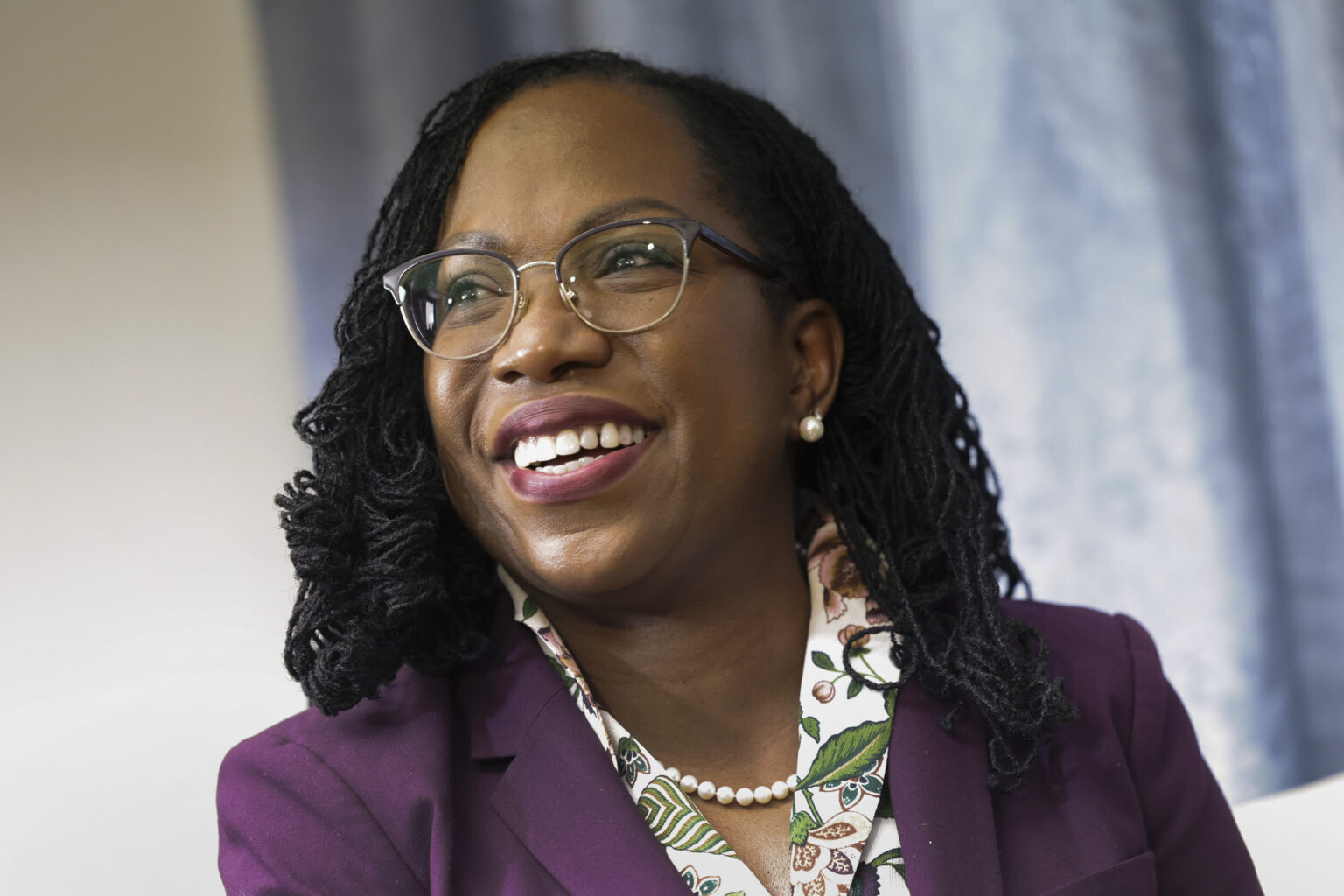Justice Ketanji Brown Jackson’s Supreme Court decisions are a “promising” sign that she is open to different legal arguments, even when they may not align with the Democratic Party’s views.
“Jackson called herself an originalist at her confirmation hearings and has shown a willingness to use history and text in her rulings,” Dan Urman, the director of the law and public policy minor at Boston’s Northeastern University of Law, told Newsweek. “That’s promising. We want our justices to be persuadable by legal arguments.”
Jackson, the most recent addition to the bench, joining in 2022, has surprised some since taking her seat on the Supreme Court. This term, President Joe Biden’s appointee, and the first Black female justice, unexpectedly sided with her conservative colleagues on a number of cases, including Fischer vs. United States, a major case pertaining to January 6.
The Supreme Court ruled in June that the Justice Department misused a federal obstruction law to prosecute January 6 defendants who stormed the Capitol in 2021, upending hundreds of prosecutions related to the riot and possibly even the federal election interference case against former President Donald Trump.
The court’s 6-3 vote divided justices across ideological lines, with Jackson, a liberal, joining Chief Justice John Roberts as well as Justices Clarence Thomas, Samuel Alito, Neil Gorsuch and Brett Kavanaugh in the majority. In a concurring opinion, Jackson said while the attack on the Capitol “inflicted a deep wound on this nation,” the question before the court was not “the immorality of those actions.”
“Instead, the question before this court is far narrower: What is the scope of the particular crime Congress has outlined in 18 U. S. C. §1512(c)(2)?” Jackson wrote.
But experts said Jackson’s decision to join the Republican-appointed justices doesn’t necessarily mean her interpretation of the law is conservative. Alison LaCroix, a professor at the University of Chicago Law School, told Newsweek that Jackson may not be as pro-Democratic Party across the board, but that her votes are still politically liberal.
LaCroix said observers may have found it surprising that Jackson broke with Justices Sonia Sotomayor and Elena Kagan in Fischer, but that her concurring opinion would likely come from a liberal justice “who would think about the rights of criminal defendants.”
“That’s what’s at issue in this case,” LaCroix said. “Not only January 6 and how that aligns with Trump and the election, but—I think for someone like Justice Jackson—it’s also the rights of criminal defendants, and that’s a frame that is much more of a liberal frame.”
Alex Badas, a professor specializing in judicial politics at the University of Houston, agreed that while the conservative justices might have handed the January 6 defendants a victory because they had “greater affective sympathies” for the defendants, Jackson delivered her vote for substantive reasons that addressed “the rights of the criminally accused and the prosecutor’s ability to overcharge defendants.”
“Typically, liberals are more supportive of the rights of the criminally accused and more accepting of limiting prosecutor’s ability to overcharge or exercise discretion,” Badas told Newsweek.
So, he said, Jackson could have been viewing Fischer along that particular dimension rather than the affective dimension that the conservative justices used to cast their votes.
Badas noted that even though Jackson has voted slightly less liberal than the other two non-conservatives on the bench—59 percent of the time to Sotomayor’s 63 percent and Kagan’s 65 percent—”it may still be too early to get a sense of her ideology and to determine whether she is less liberal than some assumed.”
“It usually takes a few years for a justice to get their footing, as they get a sense of the new job,” Urman agreed.
Read the full article here













